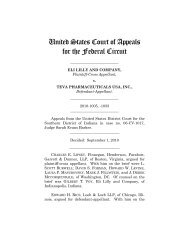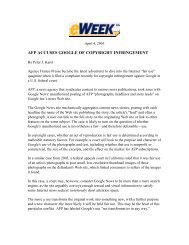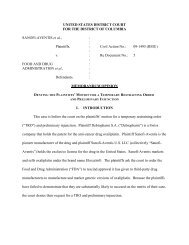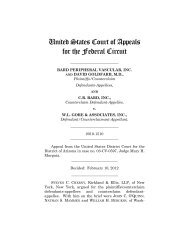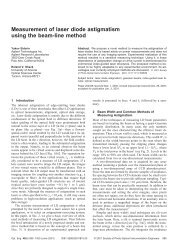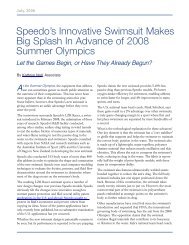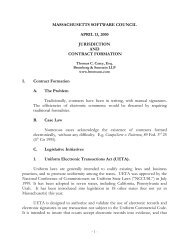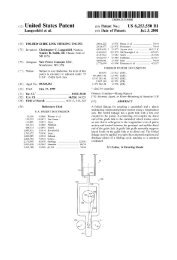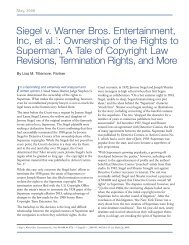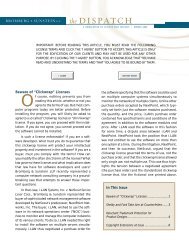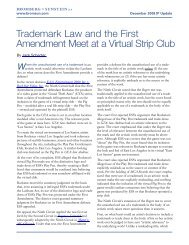Gucci America Inc. v. Frontline Processing Corp
Gucci America Inc. v. Frontline Processing Corp
Gucci America Inc. v. Frontline Processing Corp
Create successful ePaper yourself
Turn your PDF publications into a flip-book with our unique Google optimized e-Paper software.
Case 1:09-cv-06925-HB Document 42 Filed 06/23/2010 Page 4 of 24<br />
Merchants’ Choice Card Services <strong>Corp</strong>oration (“MCCS”), though Woodforest disputes the<br />
nature of the relationship.<br />
To understand the roles of the three defendants and their alleged liability, a summary<br />
explanation of the credit card transaction process is necessary. A customer will initiate the<br />
process when he or she purchases a product from the merchant with a credit card. Once the<br />
credit card information is “swiped” on a terminal, or entered on a website, the merchant terminal<br />
transmits an authorization request to the merchant’s “acquiring bank,” who in this case was<br />
<strong>Frontline</strong> and Woodforest. The acquiring bank sends the credit card request through an<br />
electronic network to the cardholder’s issuing bank. Based on the cardholder’s credit limit or<br />
other factors, the issuing bank will send a message back through the network to the acquiring<br />
bank, who forwards it back to the merchant, which states that the merchant should either approve<br />
or decline the transaction. If approved, the merchant will complete the transaction and the<br />
acquiring bank will credit the merchant’s account with the appropriate amount of funds. This<br />
entire process typically takes a matter of seconds. Some days to months after the sale is<br />
completed, the acquiring bank will submit the transaction information to the issuing bank, which<br />
will seek payment from the cardholder and settle with the acquiring bank.<br />
<strong>Gucci</strong>’s overarching theory of the case is that Durango arranged for web companies that<br />
sold counterfeit <strong>Gucci</strong> products to establish credit card processing services with companies like<br />
Woodforest and <strong>Frontline</strong>. These processors then provided the credit card services necessary for<br />
the sale of the faux <strong>Gucci</strong> items. The complaint focuses largely on the allegedly representative<br />
conduct of Defendants with the Laurette Counterfeiters. According to Plaintiff, Durango acted<br />
as an agent for the defendant credit card processing companies 3 to locate potential customers,<br />
including the Laurette Counterfeiters and other similar infringing online operations. Durango<br />
collected a referral fee for bringing together these online merchants with banks and companies<br />
like <strong>Frontline</strong> and Woodforest. Durango’s website billed the company as specializing in services<br />
for “High Risk Merchant Accounts,” including those who sell “Replica Products.” Compl. 48.<br />
<strong>Gucci</strong> alleges that the Laurette Counterfeiters entered into a “Merchant Service Agreement” with<br />
Durango through one of its sales representatives, Nathan Counley and, through this relationship,<br />
“procur[ed] merchant accounts with credit card processing agencies, including Defendants<br />
3 Neither party has provided sufficiently clear terminology to describe Woodforest or <strong>Frontline</strong>. For the purposes of<br />
this opinion, terms like “acquiring bank” and “credit card processors” are intended to have the same meaning and do<br />
not imply anything about their services beyond what is alleged in the complaint.<br />
4



